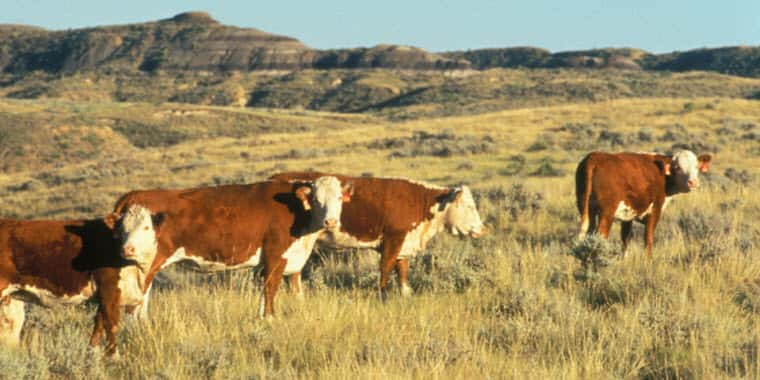The National Grazing Lands Coalition (NatGLC) recently penned a letter to the Appropriations Agriculture Subcommittee to voice their support of $50 million in funding in the Fiscal Year (FY) 2022 agricultural appropriations bill. The appropriation would come through the Grazing Lands Conservation Initiative (GLCI), within the Conservation Technical Assistance line of the Natural Resources Conservation Service appropriation.
They say since 1996, every Farm Bill has recognized the need for a collaborative approach to voluntary conservation practices to help in meeting the high demand of producers seeking technical assistance from the Natural Resources Conservation Service.
Funding for Conservation of Private Grazing Lands authorizes $60 million per year for voluntary conservation funding passed through recognized partner organizations, like NatGLC. However, despite the authorization never having been removed, funding has never been appropriated.
NatGLC says that’s where landowner and organizations can come in and help by April 9th. There is a “Sign-On” letter where demonstrating individual landowners and organizational support can sign on to support federal funds which they say is essential in securing funding.
The coalition also published their letter which was sent to leaders at the nation’s capital. They highlight several key points that well-managed grazing lands offer including profitability to producers, saving of taxpayer money and protecting natural resources.
The full letter can be found below.
####
NatGLC – 2021
“Dear Member, Appropriations Agriculture Subcommittee:
We are writing in support of $50 million in funding in the Fiscal Year (FY) 2022 agricultural appropriations bill for the Grazing Lands Conservation Initiative (GLCI), within the Conservation Technical Assistance line of the Natural Resources Conservation Service appropriation.
Well-managed grazing lands are profitable. Grazing-based operations reduce feed, machinery, and veterinary costs while providing for people and caring for the land. Managed grazing of grasslands is working profitably for many producers across the nation; indeed, grass-based farms and ranches are an important strategy for introducing new farmers into livestock management because they can be low-capital operations that generate sufficient income for start-up farmers and ranchers. Grazing livestock thus offers a relatively low-cost opportunity for new farmers to stay or join rural communities, improving agriculture by diversifying the landscape, revitalizing rural communities, and connecting them to eaters from cities and suburbs. Moreover, the profitability of these systems is more stable and resilient to price and weather shocks, making them an attractive, less risky farming option.
Well-managed grazing lands can save taxpayers money and protect natural resources. Grasslands can protect water quality, improve soil health, help stabilize the climate, and provide high quality habitat for pollinators and wildlife. Operations that keep cover on the ground year-round increase water infiltration and reduce the impacts of flooding, helping avoid expensive damage to roads, bridges, culverts and other tax-funded infrastructure.
Grazing technical assistance matters. Maximizing the benefits of well-managed grazing lands takes knowledge and skill. Grazing planning, technical assistance and peer-to-peer education are key. Counties with dedicated grazing staff show marked increases in the use of practices such as rotational and prescribed grazing compared to nearby counties with no dedicated staff. $50 million for GLCI would help to ensure that farmers and ranchers interested in grazing get the quality and quantity of technical help they need to succeed. It would also support grazing networks of farmers and grazing educational events, such as grazing conferences, special workshops, webinars, and other outreach.
We request that you support $50 million in funding for the Grazing Lands Conservation Initiative for FY 2022.”


